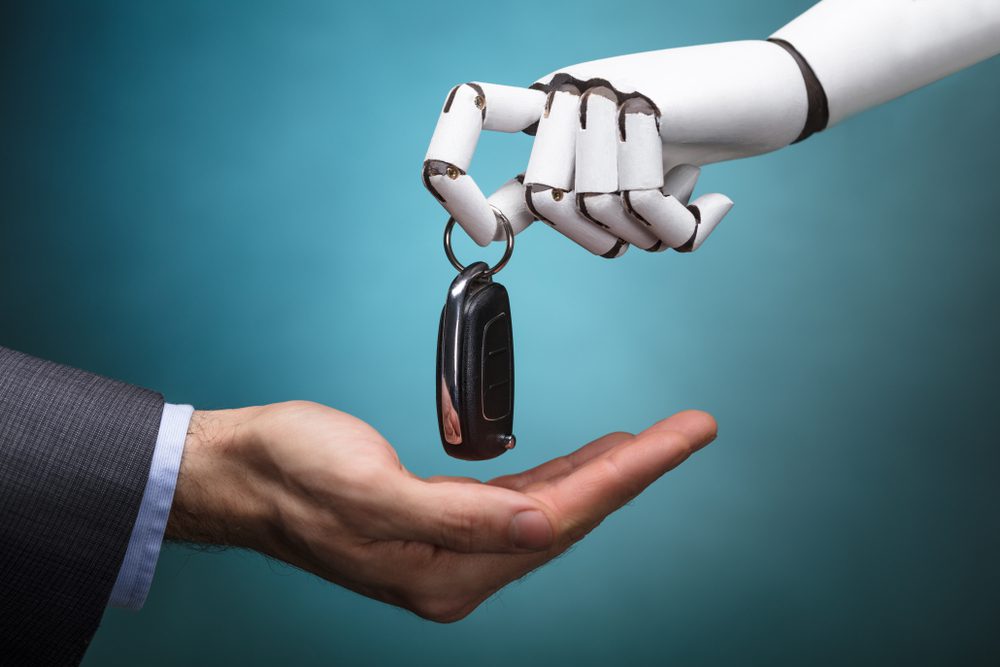Artificial Intelligence is no longer relegated strictly to Sci-Fi movies or futuristic dreams. It doesn’t look like a silver boy-shaped robot, but AI is firmly embedded in the mainstream, and that includes automotive. The applications for AI in the auto industry are vast and the possibilities are seemingly endless. Today, the varying uses are being integrated and you should expect that AI will permeate almost every part of retail automotive in a few short years. This rather remarkable shift in the industry may not seem important to the average salesperson, manager, or service personnel. However, you should be aware of how artificial intelligence is impacting your work environment.
Intelligent Manufacturing
Research, design, and manufacturing processes have been transformed by AI, all without ever being brought into view. Beneath the shiny coat of paint and the incredibly precise manufacturing standards today, AI plays a factor.
‘Smart’ factories, as identified by McKinsey & Company, contain robotics and machine learning for the most reliable, well-finishes vehicles ever. Thousands of sensors monitor the factory floor at every stage to ensure the product that you’re delivering from your showroom will satisfy your customers’ expectations.
Workers can wear robots to enhance strength and mobility. AGV’s, or Automated Guided Vehicles, can intelligently transport materials within the plant. Manufacturing uses are seemingly endless.
Tailored Auction Purchasing
Manheim M LOGIC is now at work in the world’s largest wholesale used car marketplace – the auction lane. Real-time data is collected and analyzed in M LOGIC to personalize the dealer’s shopping experience, provide automated optimization results for reconditioning and market analysis, and up-to-the-minute valuation tools so you can be sure you’re buying auction cars right.
Enhanced Customer Experience
Cox Automotive has insight into the customer experience as it relates to AI. It’s been put to use in its Connect CRM for a three-pronged approach: Engagement Strength, Sentiment Analysis, and Buying Signals. By analyzing customer behavior, it can help dealers better understand the customer and how to close the deal.
ADAS Systems Use AI
Adaptive Cruise Control, Lane Keeping Assist, Blind Spot Monitoring, and other advanced driver-assist systems (ADAS) take advantage of artificial intelligence. This is where the world expects AI to be used in automotive – to make operating a car safer and, ultimately, a driverless experience.
Pinpoint Marketing
Advertising has become nearly impossible to accurately target buyers and sifting through big data at the dealer level simply isn’t practical. AI-based cloud platforms can make targeted ads not only possible but incredibly valuable. It has the power to identify acute circumstances in the ownership experience and display relevant ads in real-time, from oil change deals to locating a public charging station and suggesting local restaurants that fit the driver’s profile.
AI as a Disruptor in Automotive
There’s no part of the automotive industry that can’t benefit from, and won’t be affected by, AI. New vehicle procurement and ordering, wholesale purchasing, trade-in pricing, targeted marketing, service reminders, vehicle diagnosis, parts ordering – all have either been already impacted by AI or will be in the near future. Manufacturing especially has been disrupted by AI. Not only is the shift toward a single sophisticated and super-fast in-vehicle computing system being pursued, but it’s connected to the cloud also. And that can make a big difference in how a customer experiences their new car.
Maximizing AI to Meet Customer Expectations
In the digital era, customers demand more than ever before. AI helps deliver that in manufacturing first. Vehicles have tighter tolerances from process that self-learn and improve without human input. Quality control is better than ever. And for customer expectations, that’s a great start. It carries into the in-dealership experience. Dealers can make the most of AI when they embrace CRMs and advertising techniques that can identify and target more precisely than simply a demographic – they can target an individual. These methods of laser-precision marketing, funneling, and customer care help dealers identify which car shoppers are buyers today and how to sell them, as well as which shoppers are future buyers and how to engage them until the sale. The effect is better conversion rates on leads, but the rate still depends on the dealership’s human follow-through.
Autonomous Vehicles and AI
No question, driverless vehicles will be arriving in your city soon if they aren’t already there. Mind-blowing computing power, cloud-based platforms, and integration of more smart sensors and improved sensors make autonomous cars a reality. The full impact of self-driving technology has yet to be seen. How broad will its integration and use be? According to AAA, 71 percent of Americans claim they’re afraid to ride in a self-driving car. Before autonomous technology becomes the norm, car makers will need to earn the public trust. Maybe that’s a task for AI also.








